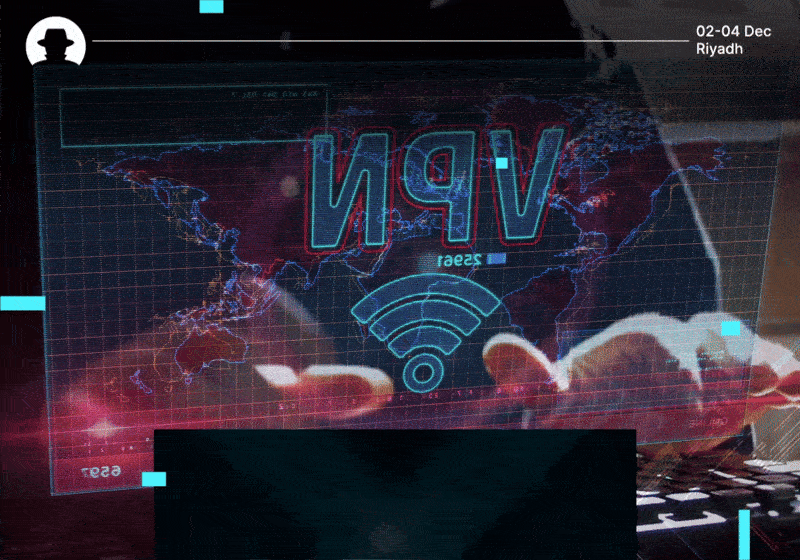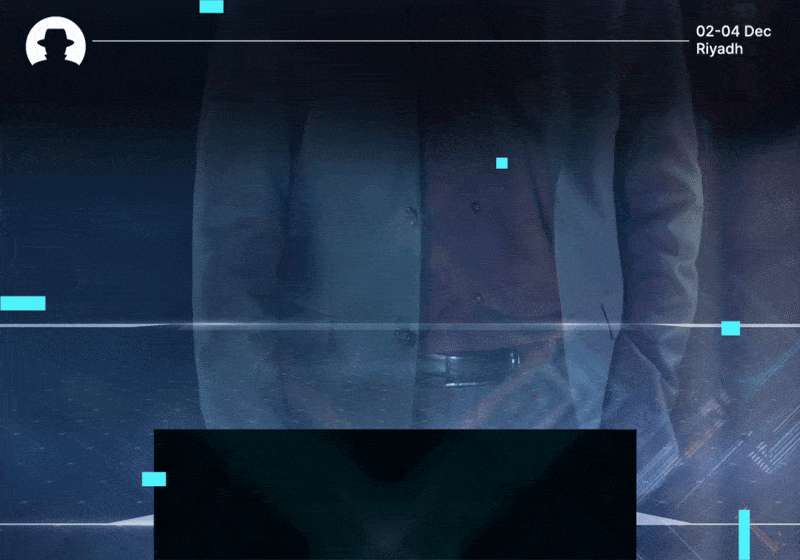
Are AI agents creating a new security risk?
With new research from Sailpoint, we look at the cybersecurity risk of agentic
Read More
Welcome to the new 103 cyber warriors who joined us last week. 🥳 Each week, we'll be sharing insights from the Black Hat MEA community. Read exclusive interviews with industry experts and key findings from the #BHMEA23 keynote stage.
Keep up with our weekly newsletters on LinkedIn, Subscribe here.
How cybersecurity creates a common language between industry folk, even across borders.
Because we interviewed Dr. Kenneth Geers (External Communications Analyst at Very Good Security), and he said:
“Cybersecurity research has taken me all over the world. Today, I am friends with analysts and scholars in many countries, but we always share at least one common language: TCP/IP.”
Transmission Control Protocol/Internet Protocol (TCP/IP), as our readers will know, is a set of rules that allows computers to communicate via networks, and over large distances.
And the point that Geers made is a powerful one: TCP/IP enables cybersecurity professionals to understand each other, even when they’re from different countries and cultures, and speak different languages.
So how did such a diverse group of human beings all adopt TCP/IP?
The model was created in the 1970s by the Defence Advanced Research Projects Agency (DARPA) – the research arm of the US Department of Defence. Developers Vinton Cerf and Robert Kahn submitted the world’s first paper on the internet, called A Protocol for Packet Network Intercommunication, at a conference in 1974. And after several revisions, they (along with Yogen Dalal) published a fourth version of the specification for TCP/IP in 1981.
The framework developed for use in ARPANET, the wide-area network that came before the internet; and while it was first designed for the Unix OS, it’s been built into all subsequent operating systems.
In 1994, work began on Internet Protocol next generation (IPng) – and both TCP and IP have been taken through major updates over the years since, with numerous variants currently available.

Do you feel an industry-wide sense of togetherness in cybersecurity?
1. YES 🤝 vote
2. NO, NOT REALLY😬 vote
DARPA partnered with BBN Technologies at Stanford University, and the University College London, to work on the implementation of TCP/IP on ARPANET. And in 1975, the first two-network test between Stanford and London took place. Two years later, the researchers performed a three-network test.
In 1982, the US Department of Defence released this statement – declaring TCP/IP as the standard for all military computer networking.
And this led to talks about the potential commercial use of TCP/IP. People were beginning to accept that the internet was going to be a part of the future; and we needed a way to organise it.
As of right now, the internet relies on TCP and IP protocols for different purposes – IP sorts the data, and TCP sends and receives it. But they both work to achieve the same goal: the reliable and orderly transmission of data between computers or nodes.
In the early days, TCP/IP was just one of many internet protocols. But it has become the global standard for internet communications – which is why it serves as that common language in cybersecurity, across borders and oceans.
Thought leaders in cybersecurity often talk about the need for international collaboration – or even global agreements about cross-border security practices and governance.
We know it’s a big leap from TCP/IP to global governance for cybersecurity. But the development and adoption of the protocol shows us that it’s possible for organisations and countries around the world to come to an agreement on standards.
And TCP/IP also shows us that the process of arriving at a global standard takes time, and involves numerous sideways steps. So perhaps, with the help of global cybersecurity events like Black Hat, we’re already on the road to effective, efficient global collaboration.
Read our interview with Kenneth Geers: International collaboration for security
Do you have an idea for a topic you'd like us to cover? We're eager to hear it! Drop us a message and share your thoughts. Our next newsletter is scheduled for 06 September 2023.
Catch you next week,
Steve Durning
Exhibition Director
P.S. - Mark your calendars for the return of Black Hat MEA from 📅 14 - 16 November 2023. Want to be a part of the action?
Join the newsletter to receive the latest updates in your inbox.

With new research from Sailpoint, we look at the cybersecurity risk of agentic
Read More
Data on cybercriminal strategy and VEC attack response shows that human behaviour is cybersecurity’s greatest challenge.
Read More
Why pivoting your cybersecurity career is good for professional growth and industry resilience.
Read More